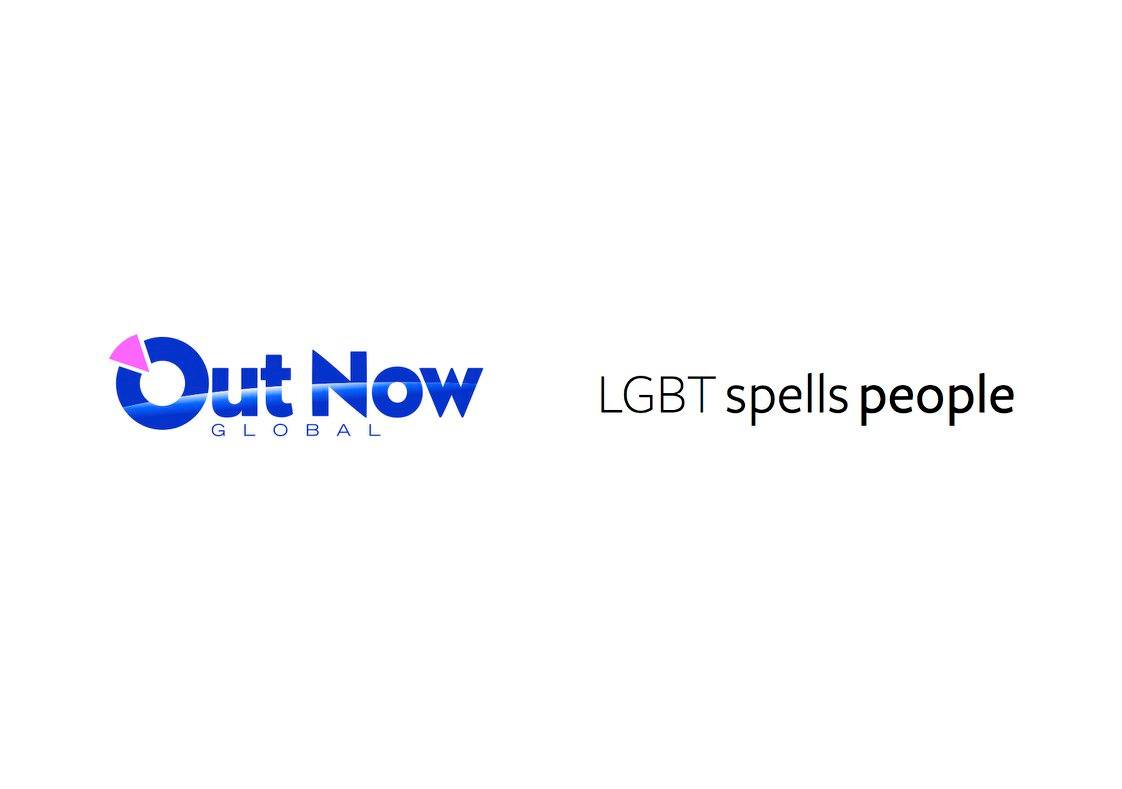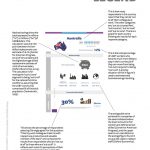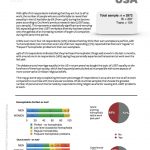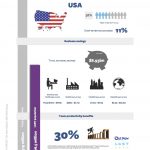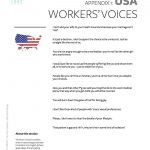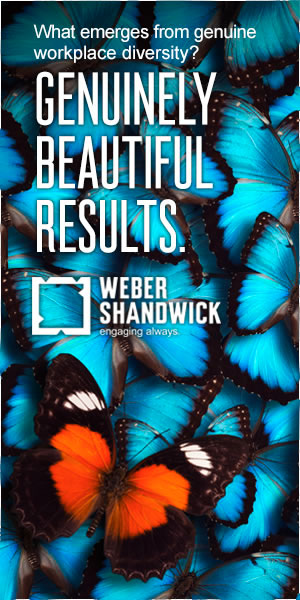Ian Johnson, CEO of Out Now talks to DIVERGE about his organization’s latest study ‘LGBT Allies: The Power of Friends.’
Johnson, who was named as one of the ‘Top 10 Diversity Consultants’ in the world by The Economist’s Global Diversity List, has been working on LGPT issues for over 25 years.
Out Now specializes in diversity research and business development – including the release of new findings from their ‘LGBT Diversity: Show Me The Business Case’ report, a global research initiative that now samples LGBT people living in over 20 countries.
The gallery below shows a legend and results specific to the US, from the LGBT Allies study.
- Study Legend
- 41% of US respondents said they had heard homophobic comments at work.
- Business Savings
- Worker’s Voice
What were some of the key findings of the study?
There is a global business case that more than justifies investment in better LGBT inclusion outcomes at work. For example, in the USA a company employing 50,000 employees can expect to save almost USD$5 million (USD$4.7 million) by creating a workplace where LGBT employees feel able to come out to all.
For a company employing 250,000 employees this figure is USD$23.6 million.
Yet many companies fail to invest even a fraction of what would deliver to them an outstanding return on investment in terms of improved employee retention and improved employee productivity. In the US we see a 30% increase in respondents feeling valued and respected as productive members of workplace teams when staff feel able to be openly ‘out’ as LGBT with all their colleagues.
One area of concern which suggests that despite ever improving diversity and inclusion policies, many organizations are failing to achieve on-the-ground activation sufficient to turn their LGBT inclusion policies into effective workplace cultural change on the ground — is the % of LGBT employees who feel able to be out with all their colleagues. For example in the USA, Out Now has tracked a 6% decline during the past five years of the numbers of US employees who report feeling able to be ‘out’ as an LGBT employee to all their workplace colleagues (2010: 44% dropped to be 38% in 2015). This is a statistically significant decline given the scale of the sampling employed in Out Now’s global LGBT2030 research and is a source of significant concern. We are working hard with a number of our clients to measure and understand this ‘diversity gap’ between improved policies and static, or declining, outcomes.
What surprised you the most?
The fact that so many respondents report ongoing problems with LGBT harassment or anti-LGBT workplace banter. We work hard to help companies build more effective policies and Out Now’s 2017 focus with clients is all about activation — making sure that better policy is translating into actual cultural change in the workplace, as experienced day-to-day by LGBT people.
We think this diversity gap is symptomatic of an ‘LGBT inclusion industry’ which has sprung up based upon how well companies score on workplace indexes (such as Stonewall (UK), Pride in Diversity (Australia) and Human Rights Campaign (USA)) or how many ‘awards’ are collected by these same companies from these LGBT NGOs and similar.
Out Now views this focus on indexing and awards as counter-productive to achieving cultural change. Our motto is ‘LGBT spells people’ so all our work is always focused on measuring and improving workplace outcomes for employees. This is the area in which organizations can unlock and reap the benefits of the immense valuation that underpins the LGBT business case.
At the end of the day, companies need to focus on outcomes and inclusion results — not on how highly they score in an index or whether an awards panel of an NGO decides to award them a leadership ‘award’.
Results matter. That is where more attention must be focused.
One of the ways we achieve this is through independent auditing of workforces in our CBA (Corporate Benchmark Auditing) program.
What was the biggest concern in the results?
As well as the comments above, it is concerning that anti-LGBT banter is still such a routine part of most workers’ workplaces.
Until these throwaway comments are understood by all to be utterly unacceptable then we see workplace cultural shift as even harder to achieve. In our training workshops we spend quite some time educating management on how pervasive and pernicious these kinds of ‘jokes’ or ‘banter’ can be to LGBT people and the Allies who support them. Workplace culture happens when nobody is watching.
People have a strong tendency not to come out at work when they hear these kinds of anti-LGBT or ‘humorous’ discussions where LGBT people are the punchline in the joke. These same people also become 11% more likely to be planning to leave their current employer – costing that employer many thousands of dollars in recruitment and retraining expenses. Far better to work at building a workplace where these jokes are never to be heard and LGBT people at every level within the organisation understand they are respected and encouraged to come out as openly LGBT to all colleagues at work.
People who remain ‘in the closet’ — keeping their gender identity or sexual identity hidden — rarely ‘come out’ during an exit interview. They just leave the enterprise and find another, more welcoming, place to work.
Can you tell me more about Out Now and its mission?
In 2017, Out Now celebrates its 25th anniversary of LGBT inclusion work. To acknowledge this milestone we have adopted a corporate slogan that encapsulates how we view LGBT business development : ‘LGBT spells people’.
Since we started work in this field in 1992, we have seen the descriptions applied evolve from “gay” to “gay and lesbian”, “lesbian and gay”, “GLBT” and more recently LGBT, LGBTQ, LGBTI and so on.
The essence of what we do is simple: we are a people business.
 Our job is to apply our expertise and efforts on behalf of our clients with a singular mission: to better understand and meet the needs of LGBT people, whether as customers, employees or more generally as members of the societies in which they live.
Our job is to apply our expertise and efforts on behalf of our clients with a singular mission: to better understand and meet the needs of LGBT people, whether as customers, employees or more generally as members of the societies in which they live.
We work with a dedicated team of diversity professionals to deliver tailored local LGBT inclusion services in more than 20 countries leveraged by our unique global focus.
Out Now is included in the ’Top 10 Diversity Consultants’ in the Global Diversity List, supported by The Economist. Out Now is the only LGBT specialist included in that prestigious list.
We are relied on by many of the world’s leading brands (including IBM, Toyota, Marriott, Citibank, Barclays, Lloyds, National Australia Bank, AXA, Viacom — and many more) to help them in several key areas: research, strategy, education, training, communications.
In diversity we are used often by clients to deliver training and sensitivity to C-suite, line managers and employee resource groups globally.
Our other key success in 2016 is the successful launch of our new Corporate Benchmark Audit (CBA) program. This innovative approach allows our client enterprises to measure and benchmark their entire workforce against a powerful set of diagnostic metrics. A CBA program lets corporations understand their relative strengths and weaknesses and measure these against national LGBT2030 averages from Out Now’s global research program for all LGBT people and Allies in each country they operate in.
What can businesses do to provide a good work environment for LGBT employees?
The successful organizations Out Now consults with follow our advice on steps needed to improve workplace environments and prevailing cultural attitudes. We always recommend visible management support be activated by going high, medium and local. Build workplaces where visible and stated support of LGBT colleagues is a simple part of the workplace. Aim to have upper level management speak positively on LGBT topics regularly. Remember though that mid-level line management buy-in is essential to successfully implementing corporate culture shifts towards true LGBT employee inclusion. Finally, make sure that colleagues in most departments are able to be out as LGBT or as LGBT Allies so that any LGBT person knows they are welcomed and supported through the various management strata within their organizations. Having local support — colleagues that work in the same physical space as LGBT employees is vital to success. Culture is what happens when nobody is looking. It is needed to have well educated LGBT Allies ready to support LGBT team members easily and instantly to attempt to shift prevailing attitudes to become more understanding and accepting of LGBT people at work.
We are providing CBA (Corporate Benchmark Audits) allowing organizations to accurately benchmark their own workforces against national LGBT2030 averages for LGBT Allies and LGBT employees.
How can the employees better educate their employers?
The fundamental assumption of the ‘LGBT Diversity: Show Me The Business Case’ report is that enterprises can be motivated by two key factors: reasons of the heart (LGBT inclusion is the right thing to do) and reasons of the head — more effective LGBT inclusion increases productivity and worker retention, driving the investment straight to improving an organization’s bottom line.
Employees should share a copy of the research with their employers. They will understand the business case contained in this report.
The ‘LGBT Diversity: Show Me The Business Case’ report can be freely downloaded via http://OutNow.LGBT
What are key things that can make an employee uncomfortable?
Anti-LGBT conduct by colleagues (jokes, banter, anti-LGBT opinions)
Being asked about their sex life by colleagues at work
Being called names and being otherwise discriminated against
Fearing that ‘coming out’ may cause them to lose out on career advancement through future promotions.
Not knowing whether their immediate colleagues, their line managers and their executive will be supportive of them if they are openly LGBT at work.
When colleagues use language or phrasing that presumes they are heterosexual.
What can other co-workers do to make it a great work environment?
LGBT Allies are key. Allies are people who choose to be supportive of LGBT colleagues at work. They can express their positive views to their colleagues about LGBT topics, they can speak up against anti-LGBT jokes or ‘banter’ at work — and they can make sure management is apprised of any anti-LGBT issues in their workplace to allow all at work to be themselves fully respecting the inclusion and differences of other colleagues.
For more information on Allies, tactics we recommend and the metrics applicable to them — download the Out Now report ‘LGBT Allies: The Power of Friends’ at this link: http://Work.LGBT
